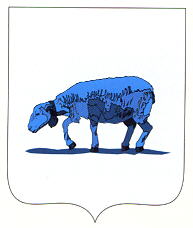Pittefaux: Difference between revisions
Jump to navigation
Jump to search
Knorrepoes (talk | contribs) No edit summary |
Knorrepoes (talk | contribs) m (Text replace - "'''Origin/meaning :'''<br/>" to "====Origin/meaning====") |
||
| Line 9: | Line 9: | ||
[[File:pittefau.jpg|center]] | [[File:pittefau.jpg|center]] | ||
====Origin/meaning==== | |||
The local council applied in 1996 for the above arms, showing a blue ewe. The ewe was derived from a part of the famous tapestry from the chapel of Souverain-Moulin. The tapestry is an important tourist spot in the municipality. At the same time the ewe is a reference to the arms of the Lubersac family, who played a mayor role in the local history. | The local council applied in 1996 for the above arms, showing a blue ewe. The ewe was derived from a part of the famous tapestry from the chapel of Souverain-Moulin. The tapestry is an important tourist spot in the municipality. At the same time the ewe is a reference to the arms of the Lubersac family, who played a mayor role in the local history. | ||
Revision as of 08:41, 1 April 2012
| Heraldry of the World Civic heraldry of France - Armorial de France |
PITTEFAUX
Département : Pas-de-Calais
Origin/meaning
The local council applied in 1996 for the above arms, showing a blue ewe. The ewe was derived from a part of the famous tapestry from the chapel of Souverain-Moulin. The tapestry is an important tourist spot in the municipality. At the same time the ewe is a reference to the arms of the Lubersac family, who played a mayor role in the local history.
Literature : Bréemersch et al., 1996

